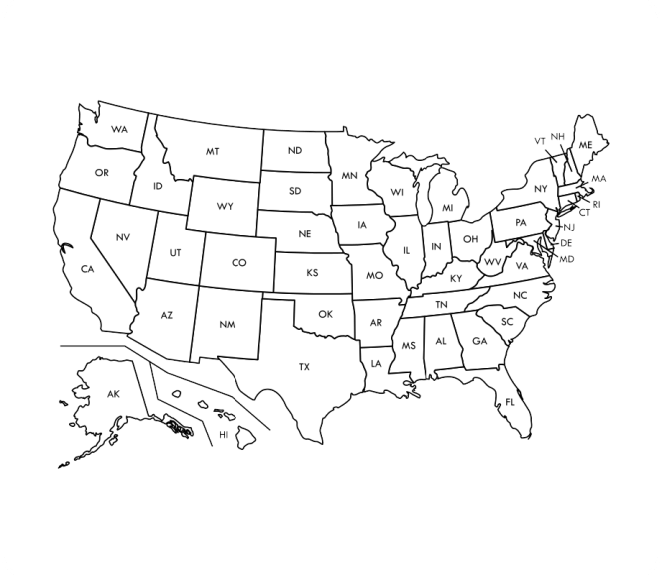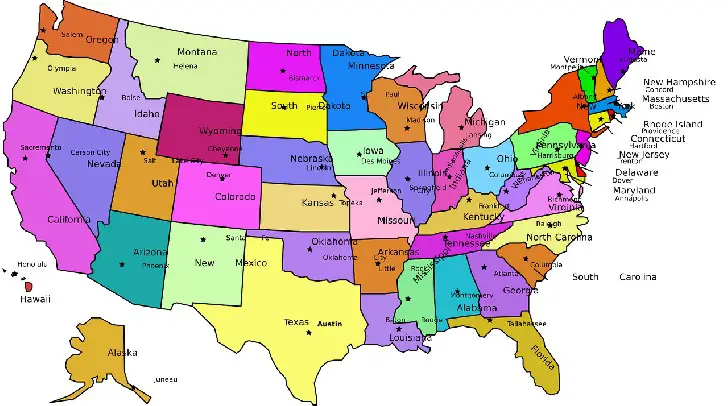State Adoption Laws and Guidelines

Understanding the slight variations within this framework is what sets you apart as either knowledgeable or not.
NEED TO TALK TO AN ALABAMA ADOPTION EXPERT? Answer these few questions to enable us to recommend matching Attorney here in AL.
State-by-State Adoption Agencies and Laws
Summaries of State Adoption Guidelines
State adoption laws and requirements are somewhat uniform across all 50 states in the US. Every country is different because they have different policies, albeit in minimal ways. These variations manifest in terms of the rigidity of the rules. There are maximum and minimum age requirements, and their focus on matching the child to an adoptive family.
There are also specific considerations that you have to keep in mind that vary from state to state when conducting a home study.
Adoption Laws and Requirements
The requirements for adopting a child in the US, among all states, require extensive training for the prospective adoptive family regarding adoption. It is a prerequisite to qualify the family as a potential recipient of an adoptee.
States also require a home study. It means that the adoptive parents have to fill out a form vouching for the safety of their home environment. Also for the overall culture and lifestyle of their family will not pose risks to the adopted child. Homes studies are conducted by a series of physical visits to the home of the adoptive family. Also, adoptive parents must prove that they are residents of the state, so there is a minimum residency requirement.
Many states allow single people to adopt. It is good news for unmarried women in their 40s or any eligible age for that matter. Marital status requirements are somewhat relaxed.
What’s given more importance is the financial capacity of the adoptive family. It seeks to ensure the ability to support a child and the overall safety of their family environment. This requirement will need an FBI and child abuse clearance to prove. Moreover, depending on the state, there can be requirements for the person looking to adopt regarding their overall emotional stability, age, and medical history.
State by State 
Adoption Laws & Requirements
By law, adoption requirements are triggered when the prospective family looking to adopt starts an adoption inquiry. It is when the state will require you to fill out adoption forms to see if you are eligible for a child placement based on basic requirements.
Once prospective parents clear this stage, the adoption agency you’re dealing with will make an application on your part. Then a social worker will walk you through the entire process of the home study, and safety-check requirement. This step is when the state will look into the environment of your home, safety, and other specifics.
You will also attend counseling and a specific number of hours of training. The training includes how the matching process works and if it requires visitation. This procedure also offers placement support that you can get as an adoptive family, even in the post-adoption period.
Pick the right Adoption Agencies
Across the USA, some state adoption laws follow some fundamental requirements for adoptive families. They have to secure a license to adopt, which the adoption agency will help them obtain.
Massachusetts, Pennsylvania, Kentucky, Illinois, Indiana, Missouri, Kansas, Texas, and Utah expect nothing more than the proper fundamental licensing for adoption agencies.
The difference lies in how stringent the rules are applied
While it may seem that some states somewhat lack in their regulations when it comes to actual implementation, that’s when you can see the difference. Some countries may not be so strict about specific requirements. Some of them necessitate the bare minimum qualifications. Still, others emphasize these conditions for those who want to self-assess before thinking about adopting.
The adoption laws requirements of states who highlight the bedroom space provision for adoptees are Connecticut, Ohio, and Louisiana. These states’ restrictions can range from two or more bedrooms in the home. Also, separate beds for adoptees and other siblings, and no sharing of beds among family members.
Louisiana is fairly strict regarding the maximum number of children that can be adopted by a household. In that state, no more than five adopted children can be placed in a home if they are under 18 years old. These differences also reflect on how to adopt in these states.
Home Study Requirements differ from State to State
Some states are also quite firm in how they conduct a home study. Oklahoma, for example, interviews each member of the prospective adoptive family. This state goes so far as to verify the family income. They also look at whether the pets at home are properly vaccinated, and if the families’ vehicles are adequately insured.
Arkansas places massive importance on safety. That is why it ensures the knowledge of CPR and first aid for adoptive families. Arkansas is also clear that they will not allow corporal punishment for adopted children. They also require that adoptive parents must respect these children’s religious beliefs.
State adoption laws differences on Minimum Age Requirement
Some states have varied their age requirements a bit compared to the typical 21 years and above.
In Alabama, the minimum age to adopt is 19.
Georgia places that minimum at 25 years old for singles, and you have to be at least ten years older than the adopted child, whether you are single or married.
Michigan and Arizona have a minimum 18-year-old threshold.
Some states, like Arkansas, put a maximum age limit on adoptions. In Arkansas, adoptive parents cannot have a more than a 45-year age gap from their adopted child.
There is no maximum age limit in Iowa as long as the prospective parents can prove their effectiveness to meet their adopted child’s needs.
More Relaxed Adoption Requirements
Some state adoption laws like New York, Colorado, Washington State, and Oregon don’t require parenting experience. They also don’t demand the prospective parent to be married. They are relatively lenient when it comes to home size, minimum income, and education thresholds.
These states try to open up the field of adoptive parents to as many people as possible. They focus on overall parental fitness. The idea is to determine whether the adoption is right for you and if you can parent a child adequately.
Conclusion
With only slight differences, adoption requirements are almost the same in all states of the USA. you must understand these differences though. Adoption policy at the federal level must be incorporated into the statutes of every state.
They all start by the prospective adoptive family commencing with an inquiry. Then eligibility confirmation, to an application, home study, and counseling. Basics also include extensive training for the prospective adoptive family on adoptions. Another basic is the home study to vouch for the safety of the home among other things.
Some states allow singles to adopt, with only the financial ability of the prospect being checked.
The most important point here is that states take different requirements seriously. And they take the implementation of those seriously while taking a relaxed approach to other requirements. See links below to specific state-by-state adoption requirements.
Resources:
Adoption Agencies
Adoption Articles
Promoted Products and Services
Adoption and Safe Families Act of 1997




